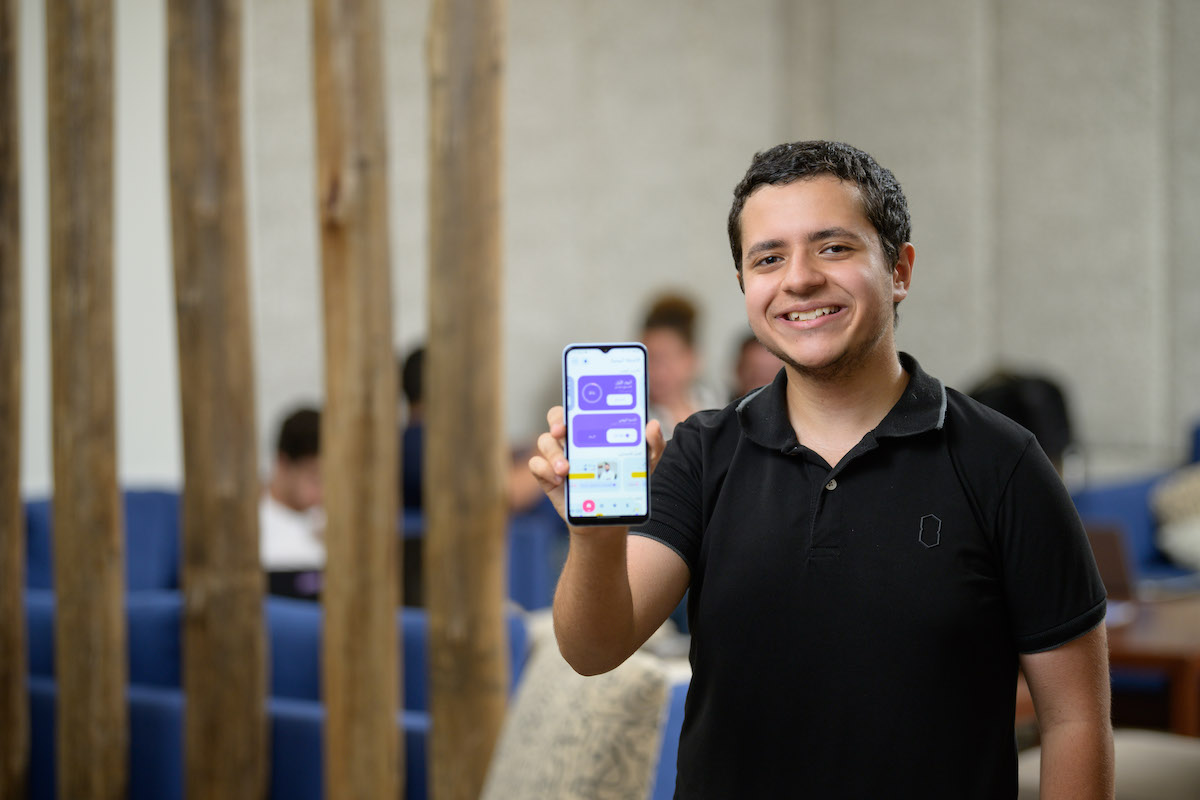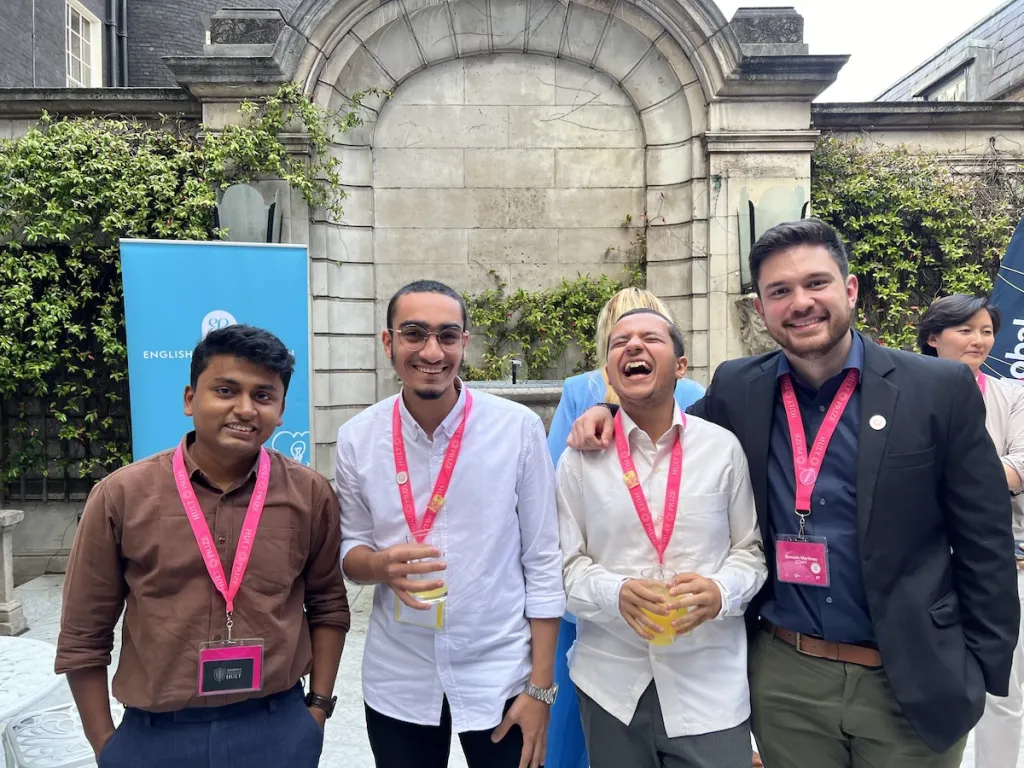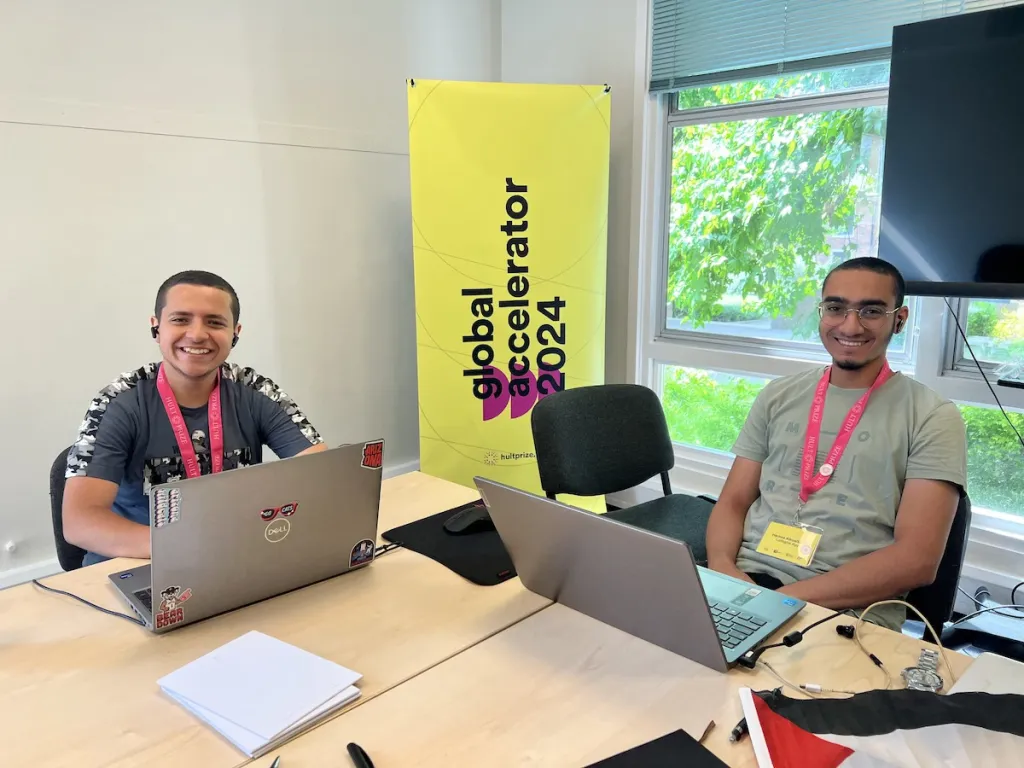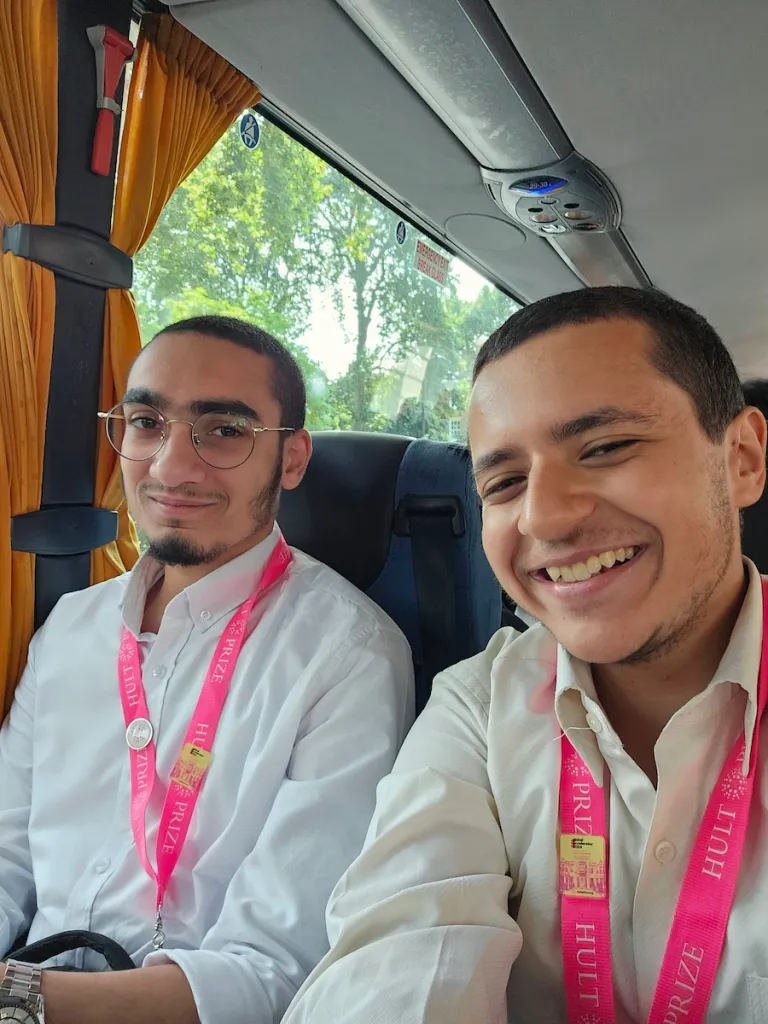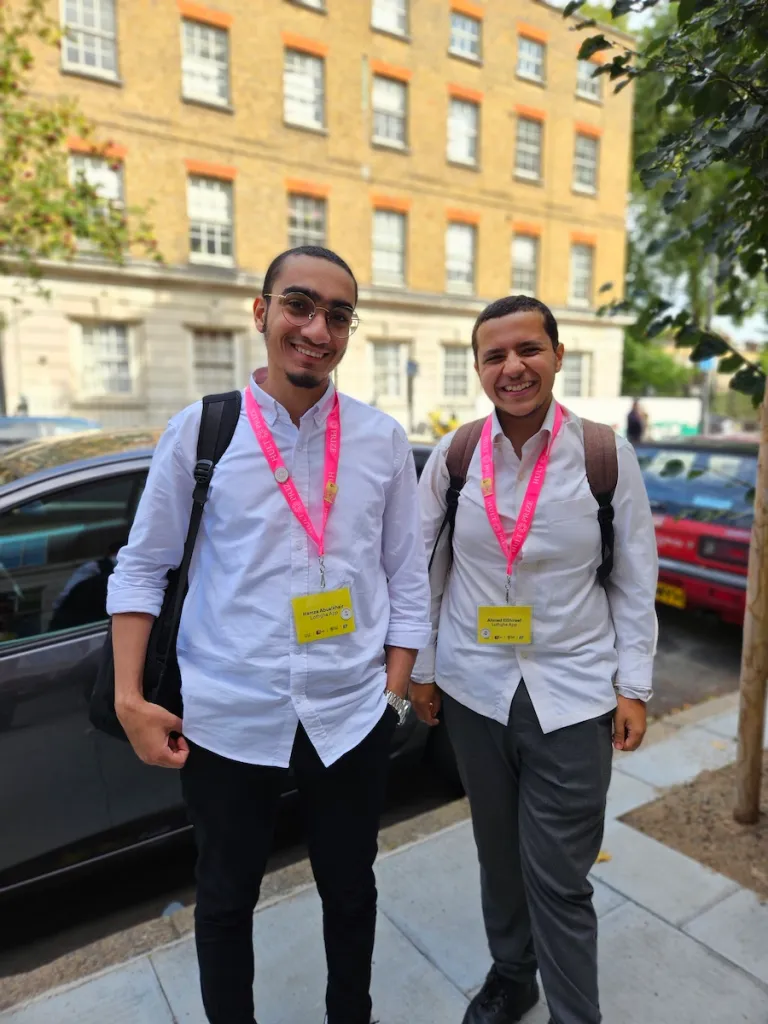By Devon Murray
Ahmed Elshireef is a 19-year-old computer engineering sophomore from Tanta, a recipient of AUC's Egyptian Public Schools Scholarship and co- founder of the award-winning speech therapy app, Lothgha. After just two years on the market, Lothgha boasts 55,000 users and dozens of success stories. Recently, Elshireef and the team won first place nationally at the Hult Prize competition and moved on to be among the top six teams at the Global Finals event in London.
AUCToday sat down with Elshireef to learn more.
What inspired you to start Lothgha?
Two important people in my life have speech disorders: my brother, who has a lisp, and my friend and co-founder, Hamza Abu-alkhair, who has had a stutter for 20 years. Speech issues can cause people to lose job opportunities and contribute to increased bullying and subsequent psychological problems. Hamza and I found that there were no virtual speech therapy solutions available in Egypt, so we decided to build an app that would offer just that.
How did you turn this into a reality?
Hamza and I started working with a speech specialist adviser to digitize the treatment that is usually performed in speech centers. We then tested it on 100 users through a survey. Each one of them was completely cured of their speech issues by using our program.
Today, Lothgha has been running remotely in Egypt for two years. We have about 14 full-time employees, six part-timers and 16 volunteers from all over the country. We are a team of expert developers, marketers, speech therapists and designers.
Tell us about Lothgha's mission and values.
Lothgha is more than just an app; it's a community dedicated to giving each voice the story it deserves. We're helping Arabic speakers who have speech issues improve their communication in 38 days through daily exercises, AI-powered assessments and a direct line to speech professionals around the world.
Mentorship is also big for us. We support the community through our volunteer program, which is open to everyone who wants to learn programming, make a difference and show the world what Egypt can do.
Two years in, what impact has Lothgha had on users?
With 55,000 users, we are proud of our many success stories. Lothgha has helped a 55-year-old grandfather reconnect with his grandchildren, supported an Arabic teacher who was bullied by his students for his speech issues and enabled many others to enroll in mass communication and military universities where fluent speech is a requirement. These stories keep us aware of the great responsibility we have to support those in need.
Having helped so many people when I'm just a sophomore in university makes me proud of what we have been able to achieve. It always amazes me what people can do -- whether that's me, the team or our users.
How did you initially get Lothgha off the ground?
We first entered the Apps UP 2022 Huawei Global App Innovation Contest. We won Best Arabic App Award and Best Social Impact Award for the Middle East and Africa, securing $20,000. We used the money to build a team and enter other competitions for startups that have a social impact, such as theGoodwill Incubator, where we won first place and EGP 100,000.
It's a funny story, but we got major funding and mentorship after losing the StartSmart competition in Saudi Arabia. There, we met an amazing and experienced Saudi entrepreneur who invested in us and became our partner, guiding us through the financial process. It was then that Lothgha became a true startup.
Recently, Lothgha joined the Hult Prize, where we competed against 10,000 applications, won the national competition -- securing another EGP 100,000 in funding -- and made it to the top six at the Global Finals event in London. We are always juggling many competitions at once. Not only do they help with funding, but they also bring up the morale of the team. Winning makes us happy!
Photos courtesy of Ahmed Elshireef
Lothgha is more than just an app; it's a community dedicated to giving each voice the story it deserves.
What challenges have you faced?
As exciting as the startup world can be, it is also stressful, especially competitions. You're representing your country and everyone who has supported you, which is a lot of pressure. As a student, it can also be hard to balance work with my studies.
Thankfully, my professors are very helpful and understanding, and my parents also keep me in line to finish my studies. What has helped me work-wise is delegating tasks to other managers, recruiting strong people who can handle these tasks and freeing time responsibly without causing slowdown within the company.
Speaking of free time, how do you spend yours?
Most of my hobbies are related to programming and side projects that have helped me learn from my mistakes and grow. I spend a lot of time with the AUC Robotics Club, where an amazing team of robotics enthusiasts and I are working on making a replica of the Stars Wars character BB-8. Recently, we won first place at an American Society of Mechanical Engineers robotics competition for our vine robot, created with a flexible design inspired by natural vines.
I don't drink hot beverages like coffee or tea as I know I will get addicted to them. What sustains me is the thrill of each new adventure I get myself into, and the adrenaline rush is enough to keep me up for days.
What first piqued your interest in programming and robotics?
I was born and raised in Saudi Arabia and moved to Egypt when I was only 12 years old. When I came here, I felt alone. My only friend at the time was my laptop, Kali, which I used to attend online courses for programming and robotics. Eventually I attended the course in person, where I was encouraged by the owner of the robotics center to join competitions.
I ended up winning the Young Inventor Competition when I was 13 for a robot called Robotica and second place in the 2020 FIRST LEGO League Egypt. My skills were also boosted when the coronavirus pandemic shut down schools. No school meant more time for programming, so I went in headfirst and learned everything I could.
What advice do you have for others who are new to competitions?
The most important thing isn't to win or lose but to learn from experiences and build your network of people with similar interests. Always push yourself so you can find out all that you are capable of doing.
Where do you see Lothgha in five years?
We recently realized that we are sitting on a treasure trove of data that can help even more people. By the end of this year, we will have collected around 30 million voice records, which could be used to improve speech recognition systems that don't yet have the ability to understand individuals with speech impairments. Through the American Speech-Language-Hearing Association, we have reached out to companies with established speech recognition systems like Google, Apple and Amazon to discuss partnerships.
Our dreams are growing every single day, reaching for higher skies. We're trying to do something bigger -- help more communities and reach more people. Wherever I say we will be in five years will certainly change after five years have passed.


